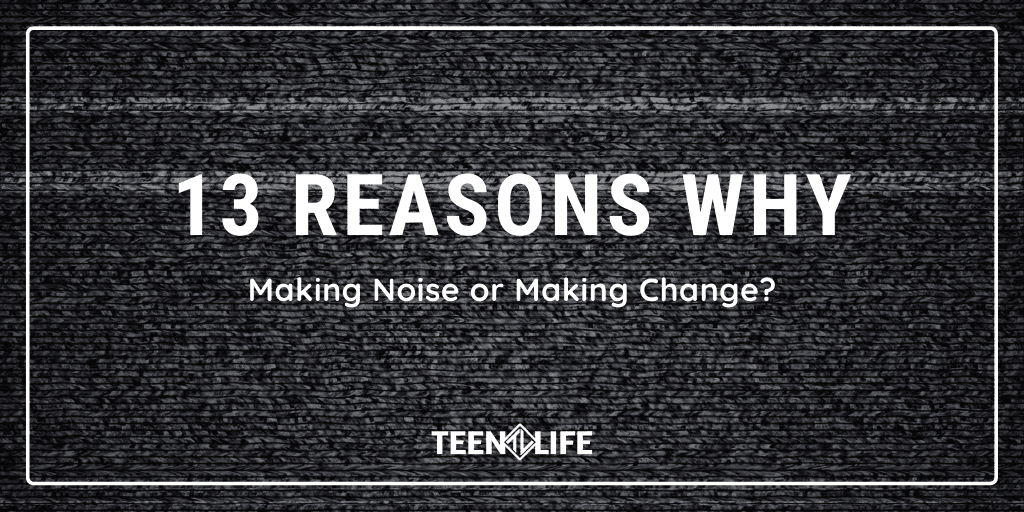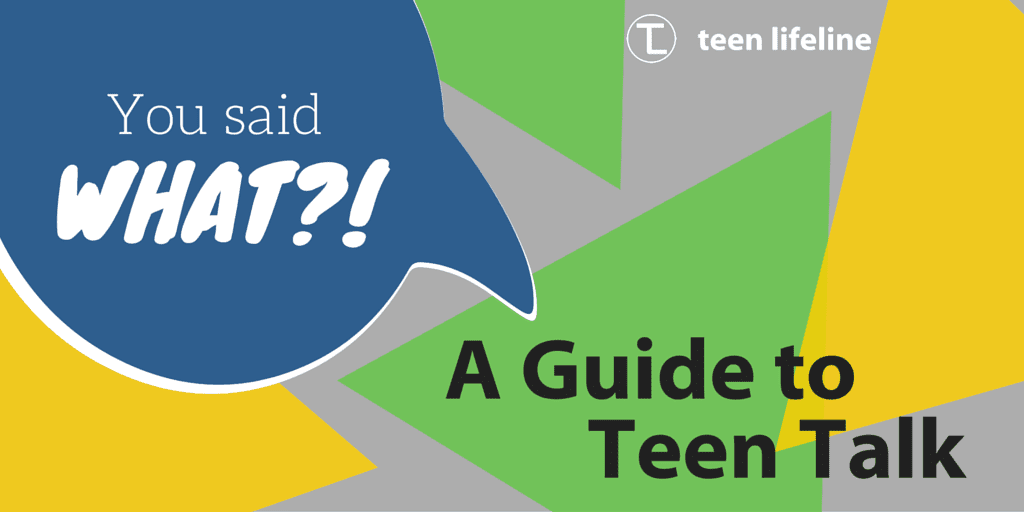
13 Reasons Why: Making Noise or Making Change?
Recently, season 3 of the Netflix series 13 Reasons Why was released. Because of its implications on teenage culture, Teen Life has been following this show since the beginning, and last month, I finished the 3rd installment of this controversial series.
Let me start by saying that this show is not one I would recommend teenagers watch. I would not even recommend that adults watch it with its mature content and language. However, I know that teens continue to watch it, and so it begs the question: Is 13 Reasons Why helping or hurting teenagers?
In this third season, the Netflix show covered sex, drugs, abortion, prostitution, gun violence, bullying, sexual abuse, illegal immigration, steroid use, and sexual identity. These are issues and topics that today’s adolescents are wrestling with, but is this the format to discuss it? To quote one of the characters on the show, “But you’re not making change, you’re just making noise!”
Wow.
What a quote! And so applicable to almost anything in our culture, especially with this age of social media driven content.
So many people want their ideas, problems, concerns, and injustices heard. That is not a bad thing at all, but there is a difference between making change and just making noise! Here are a few ways that we can encourage teenagers (and ourselves) to make more than just noise.
Be willing to listen.
There is so much injustice going on right now in our country and world. It isn’t right and it shouldn’t be tolerated, but before you shout your thoughts, be willing to listen. Listen to those who have been hurt and marginalized. Listen to different opinions in a respectful way. Noise leaves little room for other voices, but change cannot happen with just one person, so listen to those around you!
Have a purpose.
If your goal is just to be angry, that is not the best way to motivate change. Have a purpose behind your words and actions. Pick a cause that you are passionate about and work to make our world better. We can’t all be champions for every issue – there isn’t enough time! But we can be allies and friends to those already doing good work. We can be encouragers. We can pick a few things to put our resources and energy behind!
Look to change yourself.
Change is difficult. Like 13 Reasons Why shows, a culture and attitude cannot change overnight. But you can start with yourself! Be honest and evaluate how you can change and grow. Do you have bias you need to face? Are you being inconsiderate to other points of views? Are you invalidating the feelings of others? This type of reflection is not easy and can even be painful at times. Be willing to ask hard questions and start conversations to grow.
Noise drowns out everything else where change is willing to listen. Noise stays the same while change has purpose. Noise is passive where change takes action. Noise can stay behind a computer device or screen while change starts a bigger conversation outside of social media.
In the midst of racial injustice, sexual abuse, school shootings, suicide and more, we need to be having conversations. While I might not agree with the method of 13 Reasons Why, I will encourage you to be brave enough to talk about difficult topics with teenagers. They know what is happening. They see more than we realize at school and in the lives of their friends. They listen, absorb, read, and investigate. Please don’t let them take on this task alone! Show them how we can start conversations to make change. Be more than noise this week!

Karlie Duke
Communications Director
Karlie Duke | Director of Communications
Karlie has always had a heart for teenagers. Through her role at Teen Life, she loves to showcase the amazing stories coming out of Support Groups, but she is especially passionate about helping adults and teenagers find connection. Karlie has a BS in Communications with a minor in Family Studies from Abilene Christian University.

